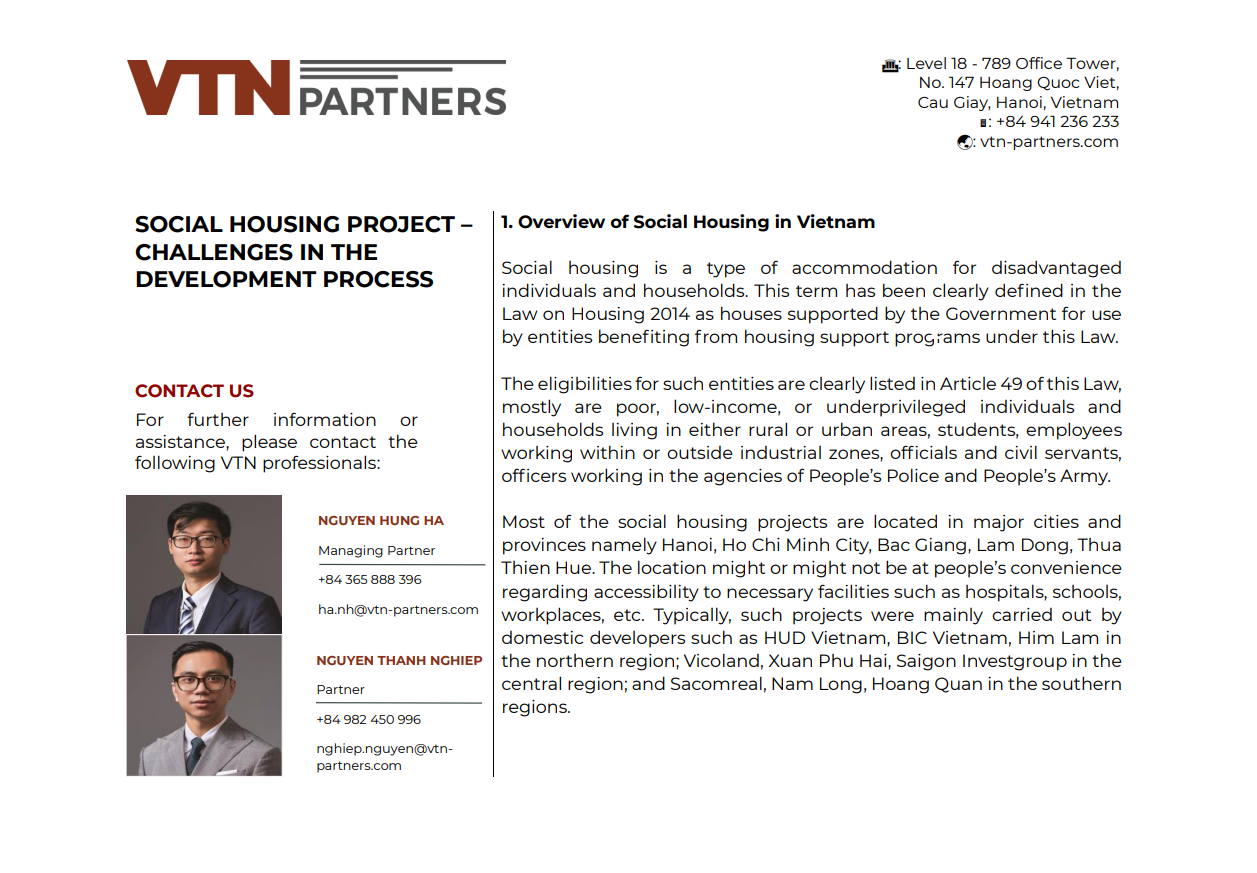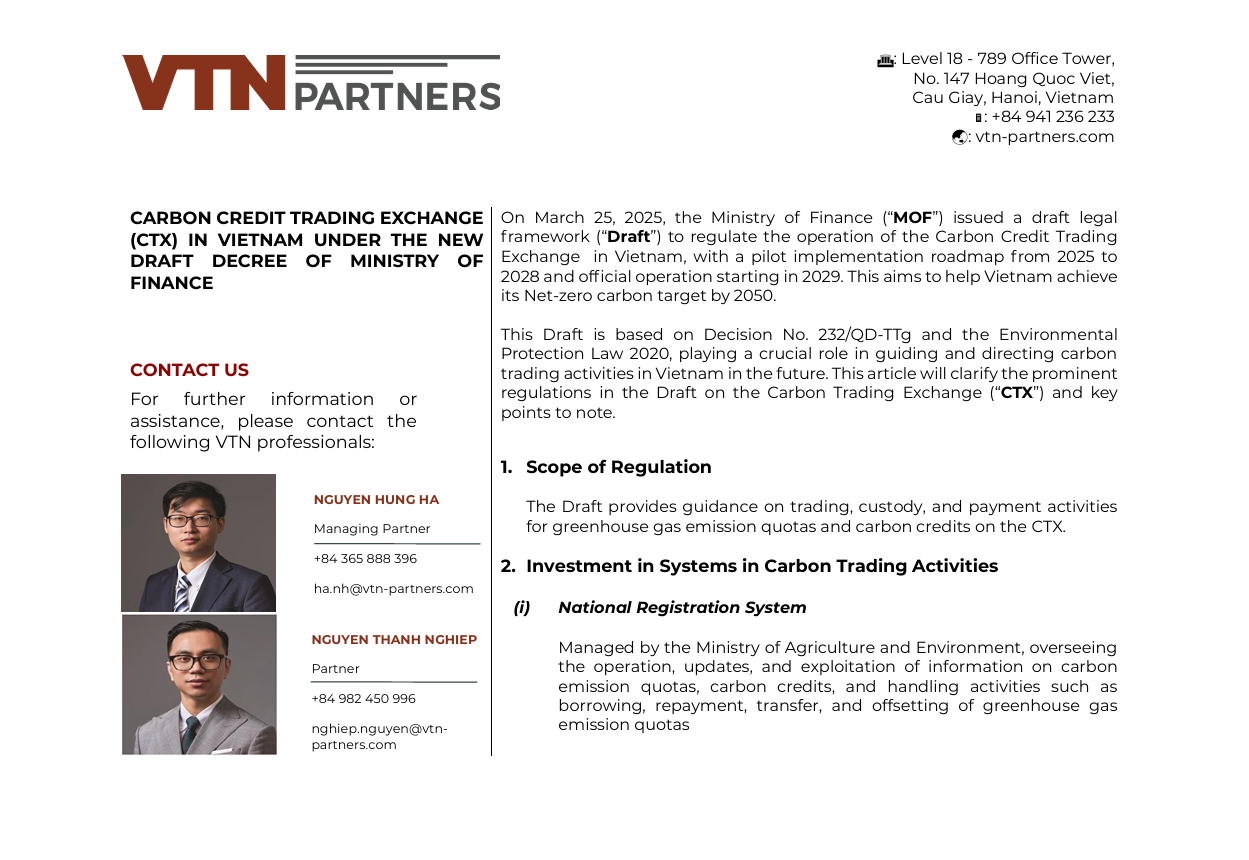In response to societal requirements and the need to address shortcomings in the Law on electronic transactions 2005 (“Law 2005”), the National Assembly of Vietnam is targeting to ratify the Draft Law on electronic transactions (“Draft Law”) during the 5th session of the 15th National Assembly. The following are notable aspects of the Draft Law:
Scope of application
Compared to Law 2005, the Draft Law expands the scope of application to include a broader range of entities. The Draft Law applies to all relevant organizations and individuals in Vietnam and internationally, encompassing all transactions without specifying conditions, content, or transaction formats. Specific regulations will be established through specialized laws. This expanded scope of regulation meets the requirements of globalization in the digital age of today’s world.
Data messages
Data messages can be created, automatically generated during transactions, or digitized from paper versions. The Draft Law introduces four ascending trust levels to determine the validity of e-transactions based on the level of the data message. The law recognizes the validity of data messages formatted in writing when they have trust levels of 3 or 4. Additionally, electronic text converted from paper versions is recognized if it meets the requirements of trust level 4.
This represents a significant improvement compared to Law 2005. It clarifies whether scanned contracts or PDF contracts can be considered valid, and their evidencing validity will be admissible. While existing regulations do not provide evidence of their validity, the Draft Law will establish a basis for confirming the legal validity of such contracts in the future.
Legal validity of an electronic contract will be determined based on the trust level of the transacting entities to the contract and the contract conclusion process, including transacting entities (e-trading accounts), data message, electronic documents and other matters with regard to the electronic contract and the contract conclusion process.
E-certificates
E-certificates are issued in electronic form to certify various documents such as degrees and diplomas. These e-certificates have legal validity and can be used when the law requires written information. E-certificates with personal signatures are permissible if they meet the requirements of the law. Additionally, e-certificates issued abroad are also considered valid in accordance with specialized laws and regulations and certified and recognized by competent state authorities.
E-certificates can replace wet-ink documents if such e-certificates satisfy the trust level of 4. To facilitate the transition between paper and electronic forms, a piece of information confirming the change of form will be added to the e-certificates. These regulations promote flexibility and encourage the use of electronic transactions in practice.
Electronic trading accounts
Individuals and organizations are allowed to have multiple e-trading accounts. Draft Law introduces new regulations for securing e-trading accounts, which include unique identification of entities, correct transaction sequences, assurance of transaction information integrity retained in the accounts, transaction time accuracy, assurance of useful transaction information, and non-repudiation of transaction information. Draft Law, likewise, specifies the responsibilities of account holders and service providers regarding secured transaction accounts. These regulations instill confidence in entities using secured e-trading accounts.
Electronic signatures
The demand for using e-signatures is increasing in business operation day by day with certain security methodology requirements. To address this demand, Article 27.2 of Draft Law stipulates conditions for the security of e-signatures. An e-signature must accurately identify the signer, be solely controlled by the signer at the time of signing, and have its data messages unchanged and certified by an organization providing secured e-signature certification services. These regulations align with the Model Law on Electronic Signatures (MLES) and adapt to the current trend of international business.
Trust service
Trust service regulations aim to certify the validity of electronic transactions and their constituent elements, ensure safe and trustworthy electronic transactions, as well as support professional electronic transaction activities based on practical requirements. This regulation represents one of the most innovative and notable aspects of the Draft Law.
Trust service in electronic transactions refers to online services provided by service providers to prove and authenticate the trustworthiness of electronic transactions. It includes e-signature authentication, electronic certificate issuance, time authentication, data message authentication, transaction authentication, and electronic contract signing.
Disclaimer:
The article cannot and does not contain any legal advice. The information is provided for general informational purposes only and is not a substitute for professional advice.
Accordingly, before taking any actions based upon such information, I encourage you to consult with the appropriate professionals. The use or reliance of any information contained in this article is solely at your own risk.
Photo source: Shutterstock






